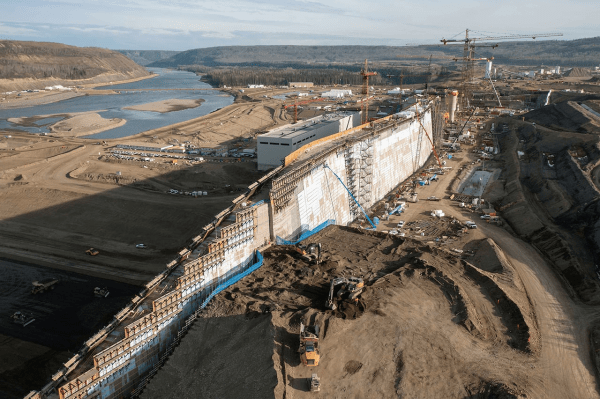Dams: Economic Assets or Ecological Liabilities?, an article by Arushi Arora at Earth.org. A few excerpts:
Climate change is one of the most pressing global issues in contemporary times, and dams play a substantial role in aggravating it by becoming feeding grounds for methane-producing microbes. In addition, dams fragment rivers and disrupt their natural flow, threatening the survival of aquatic fauna, especially migratory species. Dams are also culpable for disrupting the biogeochemical cycles of river ecosystems, thereby impacting their function and structure. Taking all the environmental impacts of dams into account, the apparent economic gain from them may not be worth it…
As disquieting as they may seem, dam failures are relatively common catastrophes in the 21st century, impacting the lives of hundreds of thousands of people and taking an irredeemable toll on the environment. This raises a pertinent question about their efficacy: “Is the environmental price of economic development through dams too high?”

…Bridgit Deemer, a research associate at Washington State University, along with John Harrison, associate professor at the WSU Vancouver School of the Environment, wrote for the journal BioScience (2016) and concluded that “while reservoirs are often thought of as ‘green’ or carbon-neutral sources of energy, a growing body of work has documented their role as greenhouse gas sources.” Vincent St. Louis, a biogeochemist at the University of Alberta, Canada, was the first to calculate the total contribution of reservoirs around the world to greenhouse gas (GHG) emissions. “Whatever dam builders may say, reservoirs are not greenhouse-gas neutral,” said St. Louis. As per his calculations, reservoirs all over the world collectively contribute roughly 1.3% of the world’s annual GHG emissions, as much as the entire nation of Canada…




Oh please, do not confuse the Site C Lobby with facts, it is too much for them. All Eby will do is jack up the Carbon Tax to rectify it.
LikeLike
“…Artificial reservoirs created by dams are distinct from natural systems in a number of key ways that may enhance GHG emissions from these systems. First, the flooding of large stocks of terrestrial organic matter may fuel microbial decomposition, converting the organic matter stored in above and below ground biomass to carbon dioxide (CO2), methane (CH4), and nitrous oxide (N2O). Second, reservoirs often experience greater fluctuations in water level than natural lakes. Drops in hydrostatic pressure during water level drawdowns can enhance CH4 bubbling (e.g., ebullition) rates at least over the short term (Maeck et al. 2014). This enhanced ebullition may then decrease the fraction of CH4 that is oxidized to CO2, a less potent GHG, by methane oxidizing microbes (Kiene 1991). Finally, the high catchment area–to–surface area ratios and close proximity to human activities (Thornton et al. 1990) characteristic of many reservoirs are likely to increase the delivery of organic matter and nutrients from land to water (relative to natural lakes), potentially fueling additional decomposition…”
https://academic.oup.com/bioscience/article/66/11/949/2754271?login=false
This article about a study led by John Harrison 5 years after the one he produced in 2016 (which Norm linked in his piece) discusses the CH4 degassing (ebullition) mentioned in the Oxford excerpt above:
https://news.wsu.edu/press-release/2021/06/01/greenhouse-gas-emissions-reservoirs-higher-previously-expected/
LikeLiked by 1 person
Thanks Lew. I appreciate your explanation. Site C has been a colossal failure on so many levels. Who would of thought?
LikeLiked by 1 person
Can someone explain how biomass settling and decomposing in a reservoir is any different than decomposing in a natural lake. I’ve always struggled with this argument.
LikeLike
Vegetation and organics left behind from “clearing” operations along with constant sediment inflows is the ideal environment for this. Happens to a small degree in natural lakes but reservoirs are huge emitters with the amount of debris left behind.
LikeLike